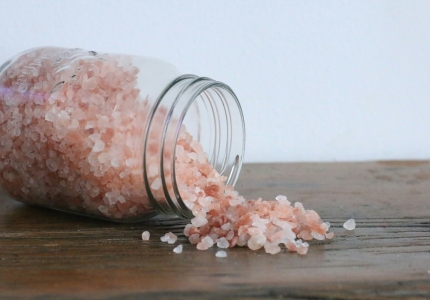Essential oils have been popular as a natural and therapeutic way to promote health and relaxation in a time when holistic well-being is becoming more and more popular. For their therapeutic qualities, fragrant essences made from plants, flowers, and herbs have been prized throughout history. We'll delve into the intriguing world of essential oils in this extensive post, learning about their history, how they function, and the various ways they support our mental and physical well-being.
Understanding Essential Oils
Essential oils are concentrated plant essence that are extracted by methods such as distillation or cold-pressing. The adjective "essential" refers to the vitality or centre of the plant, emphasising how strong and fragrant these oils are. Essential oils have been used for centuries by cultures all over the world because of their known therapeutical properties. The long history of essential oil use, spanning from ancient Egypt to traditional Chinese medicine, demonstrates the lasting appeal of these botanical marvels and their profound impact on human well-being.
How Essential Oils Work
The science behind essential oils reveals their intricate interaction with the body. Essential oils affect the neurological system through the combined processes of inhalation and absorption, offering holistic benefits. These oils can be applied directly or diffused into the air to promote general emotional and physical balance, lower stress levels, and improve relaxation—all of which lead to a harmonic harmony between the mind and body.
The Diversity of Essential Oils
The world of essential oils is a mosaic of aromas and health advantages, with every oil having special qualities. These oils have a variety of uses, from the grounding properties of lavender to the energising aroma of eucalyptus. As we explore popular oils like tea tree, we discover their versatility, ranging from relaxation to immune support and the absorption of the best vitamins for the skin. Knowing the variety of essential oils enables us to customise our experiences and select oils that align with our personal wellness objectives.
Aromatherapy and Essential Oils
Aromatherapy, the art of using scents to improve well-being, plays a crucial role in harnessing the benefits of essential oils. It's crucial to choose the appropriate oil for a given purpose, such as improving sleep quality or relieving stress.
After selecting a diffuser that fits your room, add five to ten drops of your chosen oil. Try several settings until you get the right strength and length of time. For a uniform scent, position the diffuser in the centre. Feel free to combine oils to create custom blends, such as lavender and cedarwood for calm or orange blossom and mint for a revitalising atmosphere.
Topical Application of Essential Oils
Essential oils can improve physical well-being and address particular health issues. Oils such as lavender, peppermint, and eucalyptus have calming effects when used topically or through massage. Tea tree, eucalyptus, and frankincense oils help support the immune system and can be easily incorporated into your skincare routine or diffused every day. Respiratory health concerns can be alleviated with tea tree, peppermint, and eucalyptus oils and its use in inhalation, steam, or diffusion. This may unclog airways and reduce congestion.
Determine your health objectives and choose oils that will help you achieve them. Select the application technique that works best for you, such as inhalation, diffusion, or topical treatment. Follow the recommended dosage, diluting the oils if needed, and add carrier oils for maximum absorption. The secret is to be consistent; incorporate essential oils into your regimen on a daily basis while keeping an eye on your body's reaction and adjusting as necessary.
Essential Oils for Mental and Emotional Wellness
The potential benefits of essential oils for enhancing mental and emotional well-being have come to light. Since ancient times, aromatherapy—a holistic approach that uses the healing qualities of essential oils to improve both physical and mental health—has made use of these concentrated plant extracts. Essential oils are frequently used in mental health to improve mood, lessen anxiety, and reduce stress. Calming oils like frankincense, lavender, and chamomile are frequently suggested for reducing stress. Citrus oils like bergamot and sweet orange, along with calming fragrances like ylang-ylang, can help reduce anxiety.
Uplifting oils like peppermint, lemon, and eucalyptus can be used to improve mood. When you carefully combine these oils, you can get synergistic effects. For example, you can blend peppermint and lemon for an energising mood boost or lavender and bergamot for a soothing blend. Using essential oils via diffusers, topical applications, or inhalation as part of everyday routines provides an all-natural and aromatic way to enhance emotional equilibrium.
Essential Oils for Physical Wellness
Physical health issues can be naturally addressed using essential oils. Certain oils, including lavender and peppermint, have anti-inflammatory qualities that help with pain relief. Due to their antibacterial properties, tea tree and eucalyptus oils can strengthen the immune system. Tea tree, peppermint, and eucalyptus are other useful herbs for respiratory health.
Consider using diffusers to inhale essential oils, applying them topically with carrier oils to relieve discomfort, or mixing them with massage oils or bath salts to promote relaxation when incorporating essential oils for certain health objectives. Seeking individualised guidance from healthcare specialists is imperative, particularly for those with pre-existing health concerns. People can take use of the various therapeutic benefits of these oils to enhance their general physical well-being by incorporating them into their everyday activities.
Safety Precautions and Allergies
It's crucial to use essential oils safely. Patch testing should be prioritised in order to detect allergies and skin sensitivity. Given their sensitivity, use caution while around children, diluting oils appropriately, and seeking professional advice. Pets, particularly dogs and cats, have particular sensitivity issues, so look into solutions that are safe for them and speak with a physician.
Observe these general recommendations: dilute with carrier oils, keep out of eyes, and use caution on regions exposed to the sun. Follow the suggested ratios, begin with small doses, and stop using the product if unfavorable responses arise. The advantages of essential oils can be enjoyed while protecting the health of people and animals by exercising awareness and knowledge.
Essential oils are a flexible and effective way to improve general wellbeing. They can treat issues related to both physical and mental health because of their varied therapeutic qualities. The holistic properties of essential oils make them a useful supplement to any wellness regimen, helping with everything from immune system support to stress reduction. These fragrant extracts can be easily incorporated into daily life with diffusers, topical applications, or relaxing baths. As individuals embark on this aromatic adventure, they discover a realm of natural remedies that promote a sense of tranquility and vitality, enriching their overall quality of life.



